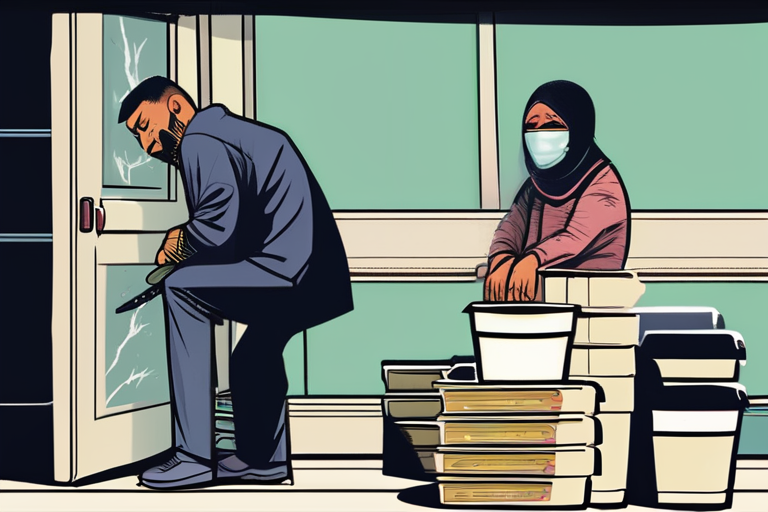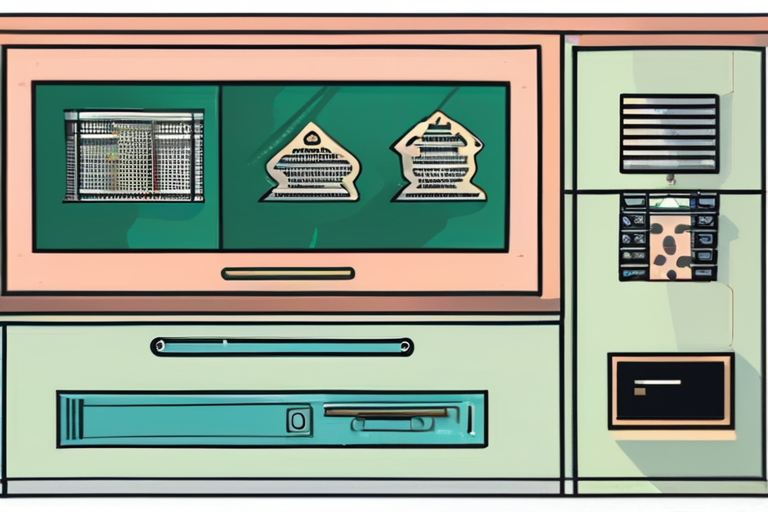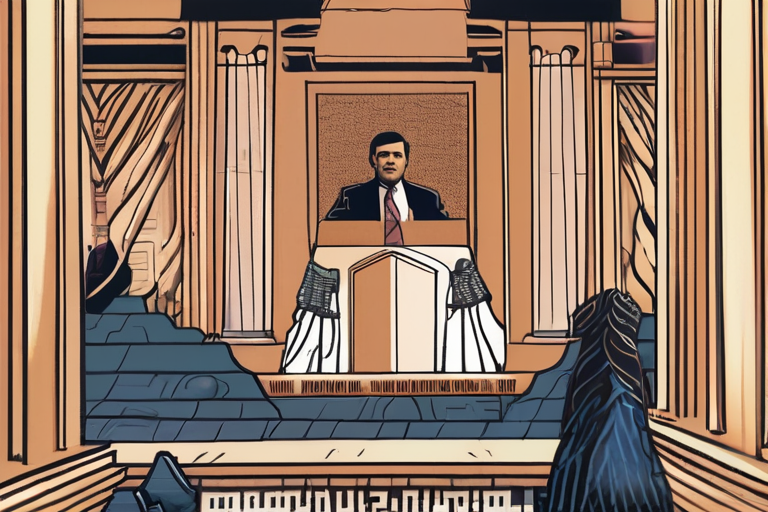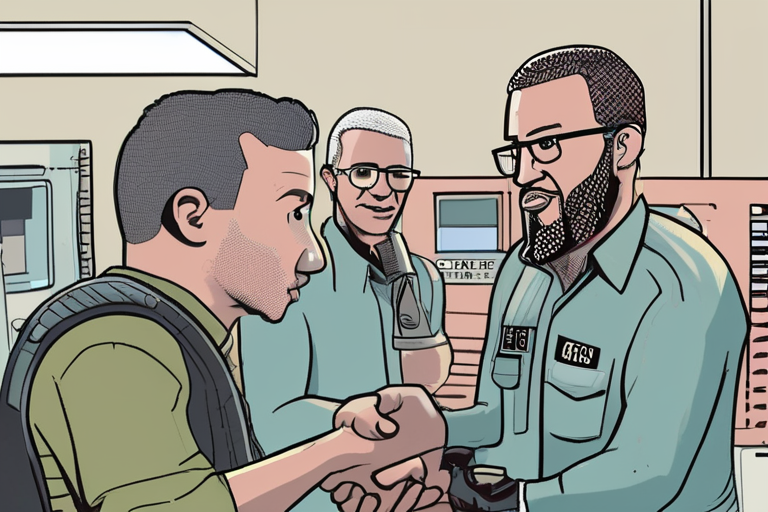The Money Trail: How ICE's Hamas Allegations Put a Family's Remittances Under the Microscope
In a small apartment in Paterson, New Jersey, Leqaa Kordia sat with her mother, sipping tea and reminiscing about their family's struggles back in Palestine. For years, they had been sending money to their loved ones through wire transfers – a common practice among immigrant families separated by borders. But when ICE agents arrested Kordia in March, the government suddenly deemed these remittances as evidence of her potential support for Hamas.
"It was like a punch to the gut," Kordia's mother recalled in an affidavit. "We were just trying to help our family survive."
Kordia's story is not unique. Thousands of immigrants send money back home every year, often pooling their resources with friends and neighbors. But under the Trump administration, these transactions have become a contentious issue. ICE attorneys are now scrutinizing remittances as potential evidence of terrorism ties – a move that has left many in the immigrant community feeling targeted and fearful.
As Kordia's case unfolds, it raises important questions about the government's use of financial data to profile individuals and communities. How can we balance national security concerns with the rights of immigrants to send money to their families? And what does this mean for the future of remittances – a vital lifeline for many families around the world?
A Family's Struggle
Leqaa Kordia, 32, came to the United States from the West Bank in 2016. She worked as a waitress and sent money to her family through wire transfers, often pooling resources with friends and neighbors who wanted to help out. "It was just something we did," she explained in a recent court affidavit. "We didn't think twice about it."
But when ICE agents arrested Kordia in March, they pointed to these remittances as evidence of her potential support for Hamas. The government claimed that any transfer of money to Palestine or Palestinians was inherently suspicious – a claim that Kordia's mother found particularly upsetting.
The Government's Case
ICE attorneys argue that Kordia's wire transfers are evidence of her "material support" for Hamas, a designation that can lead to deportation and even terrorism charges. But critics say this approach is misguided and overly broad.
"The government is essentially saying that any immigrant who sends money to their family in Palestine is somehow supporting terrorism," said Rachel Levitsky, an immigration lawyer representing Kordia. "It's a gross overreach of authority."
A Community Under Siege
Kordia's arrest came days after immigration agents grabbed Columbia University activist Mahmoud Khalil in New York City. Like Kordia, Khalil was targeted for his involvement in pro-Palestine protests – a move that has left many in the immigrant community feeling anxious and fearful.
"This is not just about Leqaa or Mahmoud," said Dr. Noura Erakat, a Palestinian-American scholar who has been following the case. "It's about the government's attempt to silence any dissenting voices, particularly those of Palestinians and their allies."
A Future Under Scrutiny
As Kordia's case continues to unfold, it raises important questions about the future of remittances – a vital lifeline for many families around the world. How can we balance national security concerns with the rights of immigrants to send money to their families?
"The government needs to be more nuanced in its approach," said Levitsky. "They need to understand that these transactions are not evidence of terrorism, but rather a testament to the love and commitment of immigrant families."
As Kordia's story comes to a head, it serves as a stark reminder of the complexities and challenges facing immigrant communities today. Will the government continue to use financial data to profile individuals and communities? Or will we find a more balanced approach that respects both national security concerns and human rights?
Only time will tell. But one thing is clear: Leqaa Kordia's story is not just about her – it's about the thousands of immigrants who send money back home every year, often at great personal risk.
*Based on reporting by Theintercept.*



 Hoppi
Hoppi

 Hoppi
Hoppi

 Hoppi
Hoppi

 Hoppi
Hoppi

 Hoppi
Hoppi

 Hoppi
Hoppi











